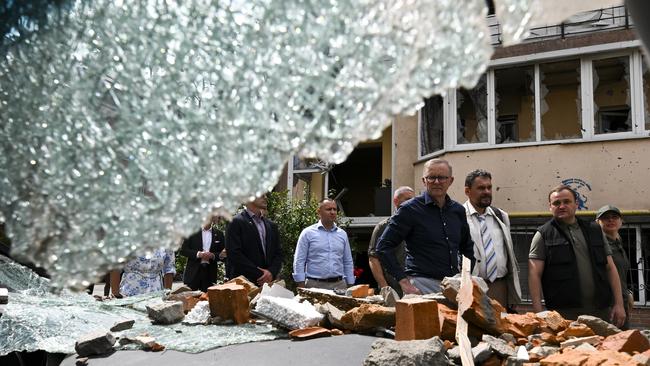
China, meanwhile, is becoming more and more assertive, has backed Russia’s war and is harassing and threatening Taiwan, while browbeating other countries, including our own. NATO, at its recent summit in Madrid, included three key Asia states: Japan, South Korea and Australia, and, to Beijing’s intense annoyance, stated plainly that it is, as a body, increasingly concerned about China’s actions and declared intentions.
There is plenty of scope for apprehension and the imagining of dramatic, even catastrophic, scenarios. Vladimir Putin has threatened to use nuclear weapons and has noted that this gave Washington and NATO pause.
Beijing is rapidly expanding its own nuclear arsenal as well as its blue water naval forces. It is strident in its rhetoric and keeps insisting that opposing it is “futile” – a stock rhetorical trope of totalitarian regimes.
Three crucial “fronts” now require buttressing if this situation is not to spiral out of control and trigger a wider war in Europe and possibly a disastrous global conflagration. NATO, after the Madrid summit, must find the collective will and means to enable Ukraine to roll back Putin’s forces and restore the sovereignty it claimed and was granted 30 years ago. The Quadrilateral Security Dialogue needs to be co-ordinated with NATO in this regard, despite India’s ambivalence. And the American position in East Asia and the Western Pacific has to be meaningfully revitalised in such a way as to make clear to China that starting a war in order to conquer Taiwan would cost it far more than it can rationally wish to suffer.
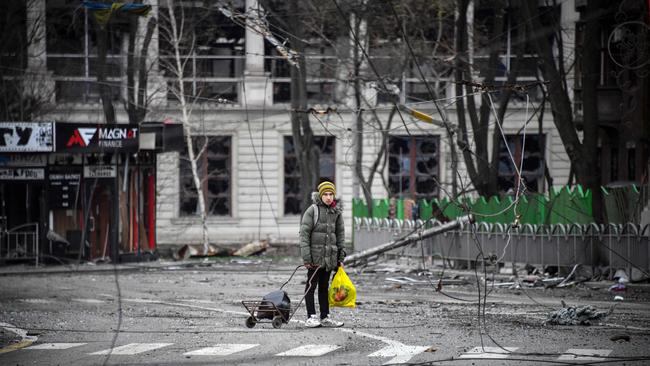
There are, of course, those who take a very different view of the state of things. Henry Kissinger, at 98, has weighed in, stating that Russia should be appeased for the sake of the balance of power in Europe. Critics of the Quad never tire of asserting that India is noncommittal and that the stated purpose of the Dialogue – to keep China honest – is chimerical, because China’s wealth and power mean it will have to be accommodated. This extends to the argument that the United States could not now win a war in East Asia with China and should, therefore, pre-emptively abandon Taiwan, its bases in South Korea and Japan, and its primacy in East Asia.
Let’s take these one at a time. Ukraine is a large and populous country whose independence was established after the collapse of the Soviet Union and agreed to by Russia. On that understanding, Ukraine – under American mediation – gave up its nuclear arsenal, while Russia retained a huge one. Washington had not pressed for Ukrainian independence. George Bush Sr in fact urged that the Soviet Union somehow be held together in the interests of both strategic stability and economic reconstruction. No matter. What Putin is doing now is imperialism, pure and simple. And his stated aims extend well beyond Ukraine.
If Putin had merely been seeking a border adjustment, things might have been negotiated. He is not. He is an open empire-builder. This threatens European security. That’s why Sweden and Finland have taken the dramatic step, which they never took throughout the Cold War, of seeking membership in NATO. That tells us all we should need to know. The Ukrainian government and people have been resisting heroically. NATO needs to find the means to enable them to exhaust Putin’s will and capacity to prosecute his war. It has not, thus far, done sufficient. Whereas French President Emmanuel Macron urges that we not “humiliate” Putin, but provide him with some kind of “off-ramp”, former CIA Moscow station chief Daniel Hoffman has openly stated that he believes Putin will be assassinated by his own military and security chiefs, because of his bungling of this war. That would, at least, provide Russia with an off-ramp and a settlement of the war could then be negotiated.
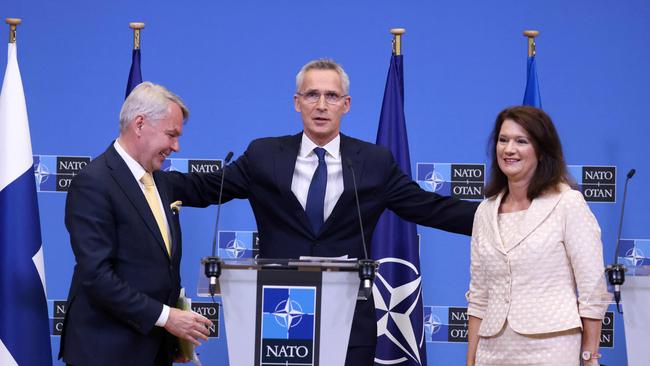
In the meantime, the Baltic states are the canaries in this coalmine. Lithuania, Latvia and Estonia suffered greatly under Stalin’s crushing rule and declared their independence from the Soviet Union at the earliest opportunity. They have been thriving as small independent states. There is no sound case for allowing Putin to bully or annex them, or indeed to extract territorial concessions from them. Lithuania, as its energetic ambassador to this country, Darius Degutis, has been telling anyone who will listen, has been very proactive in seeking to head off such possibilities. It must be heeded and aided.
The current war in Ukraine and the accession to NATO of Sweden and Finland evokes historical memories, in that part of the world, of the Great Northern War (1700-1721), in which Tsar Peter the Great defeated King Charles XII of Sweden, suppressed the Cossacks in Ukraine and founded the Russian empire. The Poles, who had been his allies against Sweden, would come to regret this as the 18th century went on. The Baltic states, too, would be conquered by Russia, later in the 18th century. Russia needs to find a way to be a peaceful and prosperous state among others in Eastern Europe, not a new Russian empire.
This is all the more so because we do not live in the 18th century, but the 21st. States now can obtain through trade and development far more than through conquest and exploitation. And the risks of large-scale war are acute. The nuclear arsenals of Russia and the US have been cut enormously since the Cold War (from 20,000 warheads each to 1500 each), but they are still terrifying. And there are more nuclear powers than ever, which complicates both deterrence and reassurance.
China’s rapid military build-up is often rationalised as simply a natural outgrowth of its increase in wealth and recovery of nationalist pride. But it is by far the largest peacetime military build-up in history and it is openly being touted as the instrument for China pushing the United States out of East Asia and becoming the dominant Asian and indeed Eurasian power. Given how enormously China has benefited from the Pax Americana, this is deeply discomforting.
The discomfort has many dimensions, but Taiwan is where they all come together. While Beijing may deny that the analogy holds, Taiwan is rightly being seen around the world now as the Asian Ukraine – a democratic and prosperous country close to the West, threatened by a neighbouring dictatorship with brutal invasion.
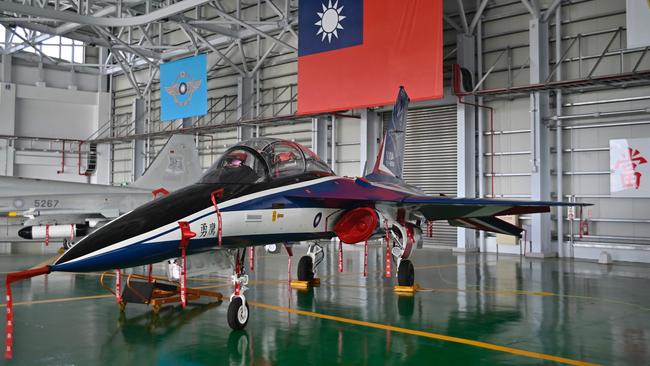
It is a “country” because it has evolved from being annexed to the Republic of China in 1945 and suppressed under martial law by the Guomindang (the Chinese Nationalists, who claimed sovereignty over the whole of China) from 1947 until 1987, to being a thriving democratic state that has neither the desire nor the need to be dominated from Beijing. Under any rational schema, it would be granted formal independence by Beijing and international recognition as a state – like Lithuania, Latvia and Estonia achieving independence from Russia and then from the Soviet Union. Instead, Beijing threatens war to the end, should Taiwan declare independence and should the US come to its aid in the case of a Chinese invasion.
In his latest Quarterly Essay, Sleepwalk to War, Professor Hugh White argues that Taiwan must be sacrificed and Chinese hegemony in the Western Pacific accepted. This would, presumably, also mean American withdrawal from South Korea, from Japan (Yokosuka and Okinawa) and from Guam. He acknowledges that this will impose suffering on the people of Taiwan, though less than would be incurred in a war. He urges that it be abandoned to its fate because he has no faith in the willingness or capacity of the US or the Quad to withstand China on this matter, if it comes down to confrontation.
Yet, as he argues, the official stance of Washington remains that it would defend Taiwan against aggression. And our own government and that of Japan appear committed to standing with America in this matter – which has us all teetering on the brink. White’s logic is Kissingerian: in the interests of keeping the general peace and acknowledging the balance of power, both Russia and China should be accepted as having spheres of influence, into which we (the NATO and Quad states, in both cases led by the US) should not interfere.
Where would this leave Australia, in White’s view? Within China’s sphere of influence and having to fend for ourselves and take responsibility for our destiny as never before, alongside India, Japan, Indonesia and other Asian states, with the US pulling back to the Western hemisphere and putting its economy and society back in better order than they are.

These are vitally important questions for our time. White evokes the 19th-century Concert of Europe as a geopolitical precedent for what he is suggesting. But that is a very vague analogy. An enormous amount that has been built up under the Pax Americana would be jeopardised if White’s prescription were followed, and for no apparent gain – only the avoidance of the risk of a catastrophic world war. It is the calculation of risk and the possibilities of deterrence that need to be very carefully calibrated in this situation.
At a time when Sweden and Finland are joining NATO, and NATO is inviting Japan, South Korea and Australia to its summit, while South Korea is considering joining the Quad out of concern about China, it would seem rather odd for Australia to distance itself from both in order to appease an aggressive Beijing.
The Albanese government has been doing precisely what those other small and middle powers have been doing – seeking reassurance in collective security arrangements. Whether they will work in either case remains to be seen, but withdrawing from them and bowing to the fascistic pressures being exerted by Moscow and Beijing would invite disaster. That’s why analogies have been drawn of late with the 1930s.
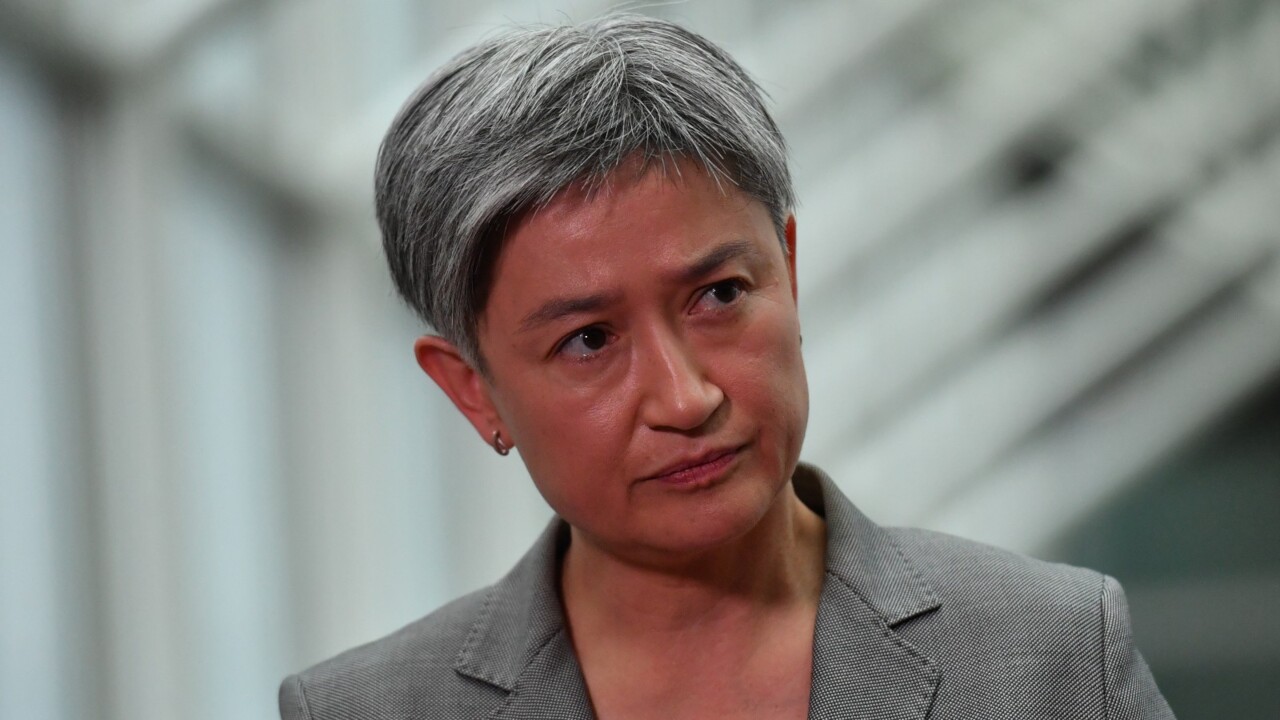
Much more needs to be done, both diplomatically and militarily, if collective security is to keep the peace and enable us to bring both Russia and China around to more commonly acceptable stances. But at least the democracies have been stirring. We are not sleepwalking to war. Rather, we have woken, belatedly, from a deep slumber and realised that war is brewing unless we collectively move to head it off. Indeed, war is upon us in Ukraine. Fortunately, there is widespread recognition of the global significance of what Putin is doing. Albanese’s visit to Kyiv, in the wake of the Madrid summit, along with his quiet but clear indication to Beijing that we are not about to accept subordination to its dictates in Asia and the Pacific, have been calm and appropriate steps. They are only first steps. The next steps are vital. They are and will be, in the nature of the case, fraught with uncertainties.
But make no mistake, those uncertainties and anxieties arise overwhelmingly from the fact that two nasty dictatorships, in Moscow and Beijing, are aggressively pushing the envelope on a revisionist basis. They are not negotiating for incremental adjustments to the existing order. They are openly setting out to destabilise and radically change it. If we can’t defend it, we will be in for a very turbulent time for decades to come.
If we don’t defend it, we will betray a great deal that was so painfully achieved in the 20th century at immense cost. We must not, having woken up, now lose our nerve or abandon our principles. That, however, is easy to say. As Thucydides long ago recorded the Athenians saying to the Melians: “The strong do what they can, while the weak do what they must.” Finding the means as well as the will to stand up is the pressing task.
Paul Monk is former head of the China desk in the Defence Intelligence Organisation and the author of Thunder from the Silent Zone: Rethinking China (2005), The West in a Nutshell: Foundations, Fragilities, Futures (2009) and Dictators and Dangerous Ideas (2018), among other books.


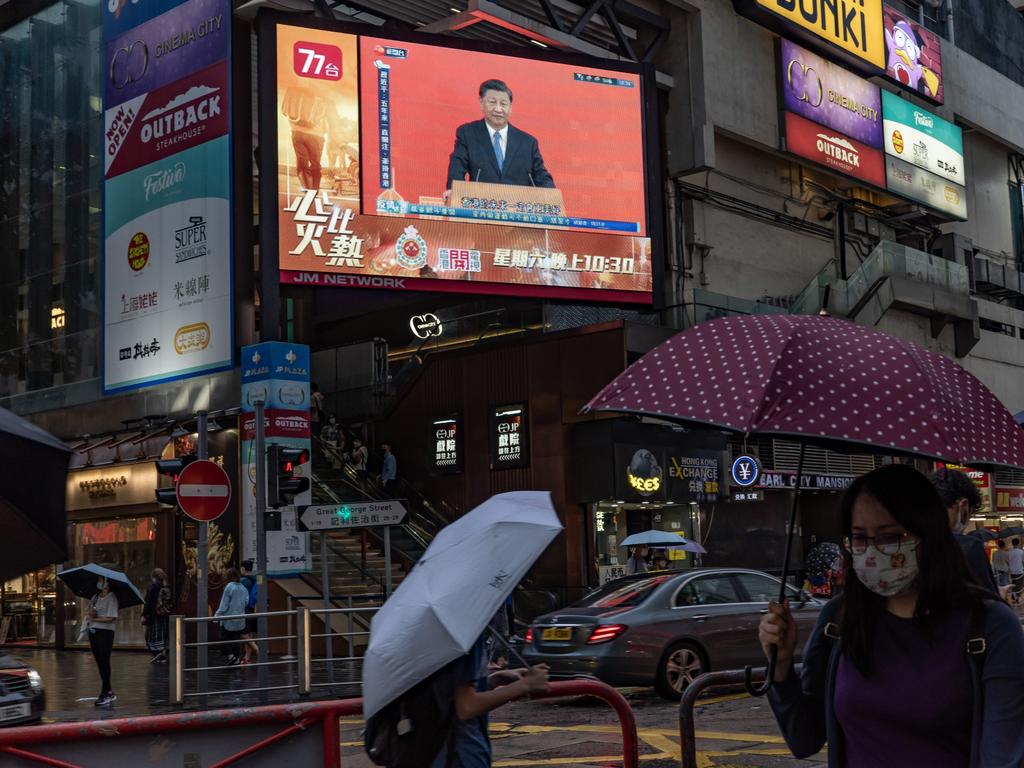


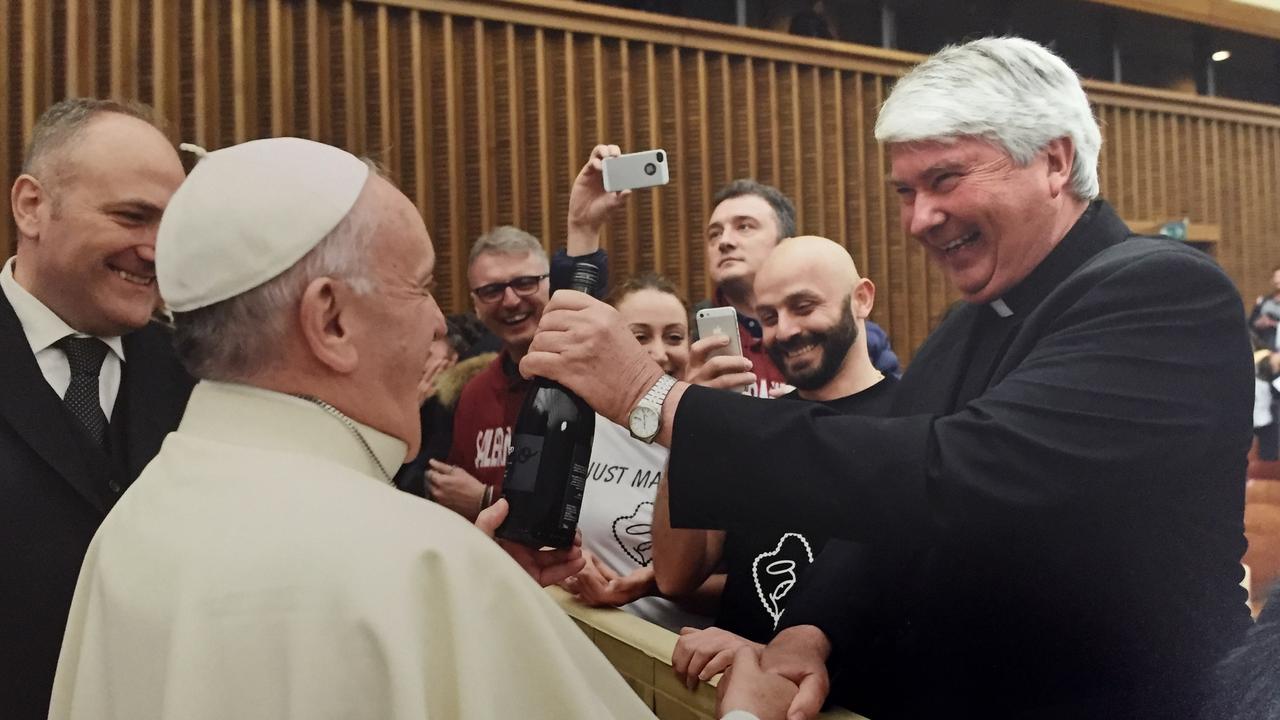

One could be forgiven for thinking right now that we are teetering on the brink of World War III. Russia has started a brutal war of conquest against Ukraine, demands that NATO retreat to its 1997 boundaries and openly talks of rescinding the independence of the Baltic states (as if it had the right to do any such thing).